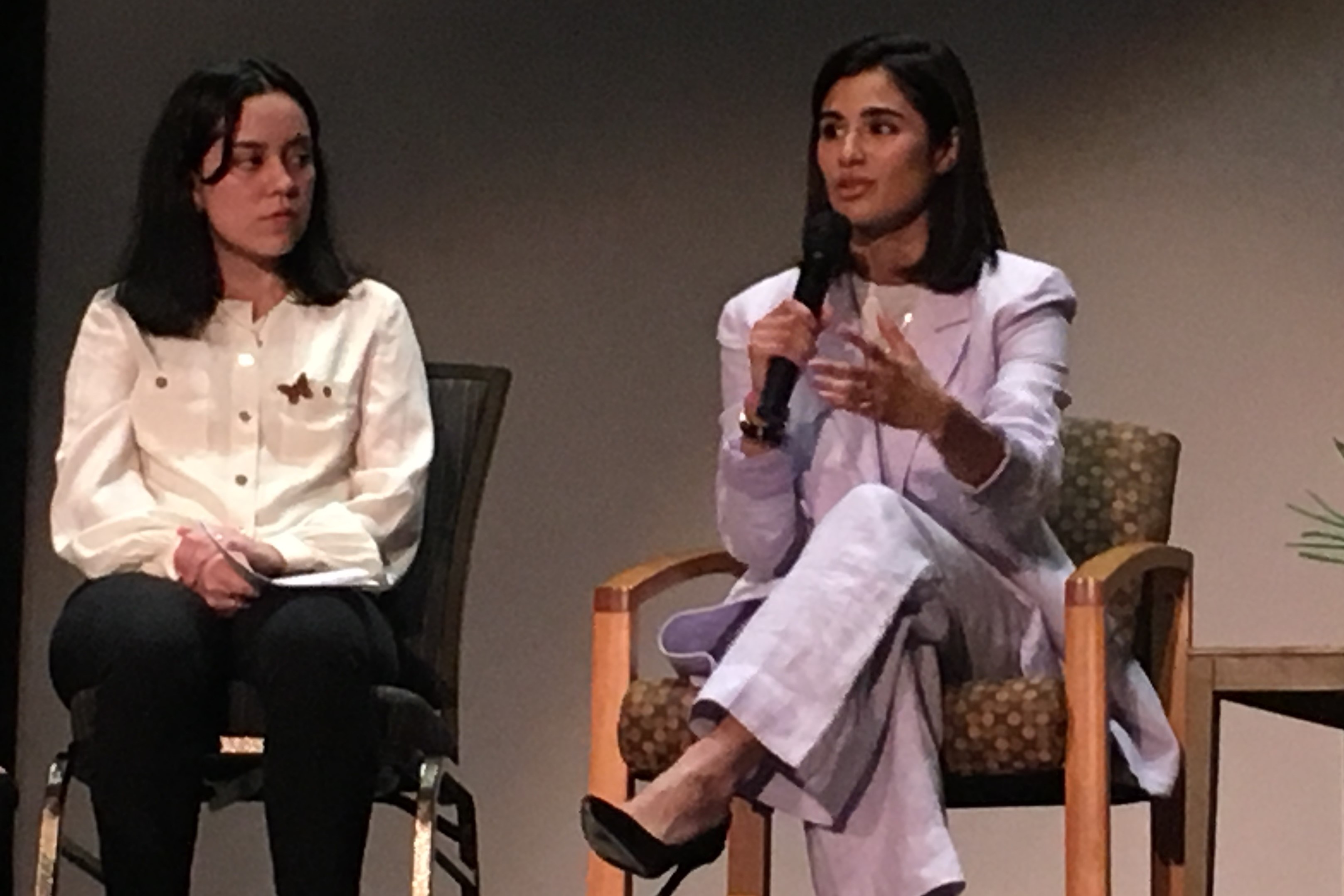By Hannah Gaskill
For The Diamondback
Diane Guerrero was 14 years old when she came home to find that her parents and brother had been detained and would soon be deported.
Guerrero, most known for her role on the Netflix show Orange is the New Black, was the keynote speaker for the University of Maryland’s third annual Social Justice Day, coordinated this year by the arts and humanities college, the education college and the engineering school.
Before more than 100 attendees gathered in Hoff Theater, Guerrero spoke about everything from her roles in Orange is the New Black and Jane the Virgin, to navigating her childhood after her parents were gone and how she dealt with her issues by sharing her story with others.
[Read more: UMD extended its undocumented student coordinator position — but it’s still not permanent]
Guerrero read from her 2016 memoir, “In The Country We Love: My Family Divided,” which addressed her family’s issues with immigration in the United States.
“My work on Orange is the New Black has taught me this: Human beings are not categorically bad because of their mistakes,” Guerrero said. “They can learn from the errors and get back on track. No one should be forever written off because of one part of his or her history, nor should anyone be held in our prisons in the name of making a buck.”
Later, Guerrero said sharing her story is what helped her recover from mental health issues she experienced after her family was deported.
“We all know that when we feel alone … you feel helpless, you don’t know what to do,” she said. “But when you get together with people who are also experiencing the same thing, then you know that … you’re not alone and there’s hope.”
[Read more: ‘It is not hopeless’: UMD panel tackles global refugee crisis]
Choosing Guerrero as keynote was a clear choice according to Linda Aldoory, the associate dean for research and programming in the arts and humanities college.
“We already knew that with Social Justice Day and Year of Immigration, we wanted the keynote to be somebody who can speak to immigration and immigration reform,” said Aldoory, who helped coordinate the event. “It just seems like an obvious choice — Diane.”
Outside of her acting career, Guerrero is an accomplished activist. She’s worked with the Immigrant Legal Resource Center, a national nonprofit that provides legal and educational advocacy programs to immigrant families, and Mi Familia Vota, a Latinx civic engagement organization.
Former President Barack Obama named her a White House ambassador for citizenship and naturalization, because of her advocacy.
Guerrero shared the stage with a panel of students from immigrant populations that worked with the coordinator of the undocumented student program, Laura Bohórquez Garcia, to prepare for the conversation.
Bohórquez Garcia said there was a lot of curiosity among the panelists about having a platform and being visible in a way they often don’t experience.
The students all wore butterfly pins, a representation of immigrants, and shared one with Guerrero, who pinned it to her lapel.
Jennifer Reyes, the treasurer for the student group Political Latinxs United for Movement and Action in Society, attended the speech to champion Guerrero and the students. She said Guerrero’s story is reflective of many students on campus.
“There are undocumented students on campus and they don’t have resources,” said Reyes, a senior public policy major. “She was very much affected by her undocumented parents’ status. … So I want to be here and support.”



